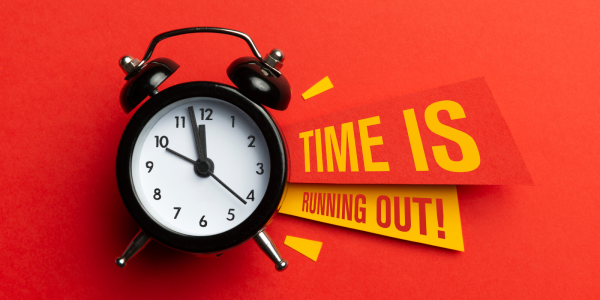Just 12 days to Self-Assessment deadline
The Low Incomes Tax Reform Group (LITRG) is reminding taxpayers that the deadline for submitting most online 2021/22 Self-Assessment tax returns is less than two weeks away, on 31 January 20231. Unlike for the previous two years2, LITRG is not expecting HMRC to allow taxpayers more time to file their 2021/22 return and pay the tax before they receive penalties.

HMRC announced at the beginning of this month that nearly half of those taxpayers who were expected to file a return for 2021/22 had yet to file3. Those who have outstanding returns will likely face an automatic £100 penalty if their return is not submitted online by midnight at the end of Tuesday, 31 January 2023. Tax unpaid by the same date will accrue late payment interest (currently at 6% per annum). Penalties for late payment will potentially apply if amounts are still not paid by midnight at the end of 2 March 20234.
Tom Henderson, LITRG Technical Officer, said:
“Due to the coronavirus pandemic, HMRC allowed people to file their returns up until 28 February without incurring a penalty for the last two years. We do not expect HMRC to do that for 2021/22 returns, so we are reminding people to take action before the 31 January deadline.
“There is still time to avoid a fine if you are one of the millions of people who still need to complete and submit a tax return for 2021/22. Do not leave it until the last minute, as you may discover that you do not have all the necessary information, or you may need to get help. Filing your tax return sooner rather than later will also mean that you either have more time to prepare for a tax bill, or you may receive a refund quicker.
“LITRG publishes a wealth of information to help taxpayers in filing their tax return, including guidance on what to do if you are unable to obtain the necessary figures5.
“Unfortunately, the Self-Assessment system contains a few traps. For example, if you need to file a tax return for 2021/22 but you have not yet registered to do so, then the 31 January payment deadline still applies, and interest will accrue on late payments6. Conversely, if you registered to file a return but you no longer think you need to do so, late filing penalties will still apply if you do not file a return by the deadline7. In either case, it is best to take any necessary action sooner rather than later.”
Notes for editors
- See LITRG’s news article published yesterday, ‘Only two weeks until 31 January Self Assessment deadline’.
- For 2020/21 and 2021/22 tax years, HMRC recognised the effect of the coronavirus pandemic on taxpayers’ ability to file their tax return and pay their tax on time. They therefore announced concessions regarding late filing and late payment penalties for each of these years. See LITRG press releases of 25 January 2021, ‘No late-filing penalties until March’, 22 February 2021, ‘Time is running out to avoid fines for late tax returns’ and 12 January 2022, ‘Get your tax return done by 31 January if you can’.
- See HMRC’s press release of 3 January 2023, ‘Almost 5.7 million customers still to file their tax return’.
- Penalties can be appealed if there is a reasonable excuse for not meeting the relevant obligation.
- See our guidance here.
- It usually takes up to ten working days for HMRC to issue a Unique Taxpayer Reference. See GOV.UK. It is possible to make a payment to HMRC by cheque without a Unique Taxpayer Reference. Taxpayers should write their National Insurance number on the back of the cheque.
- In this situation, if the taxpayer does not meet HMRC’s Self Assessment criteria and is late in filing their tax return, it is usually better to ask HMRC to withdraw the filing requirement rather than file a late return. If HMRC agree to withdraw the filing requirement, then any late filing penalties will be cancelled automatically. But if a return has been filed late, then the late filing penalties can only be appealed if there is a reasonable excuse.
